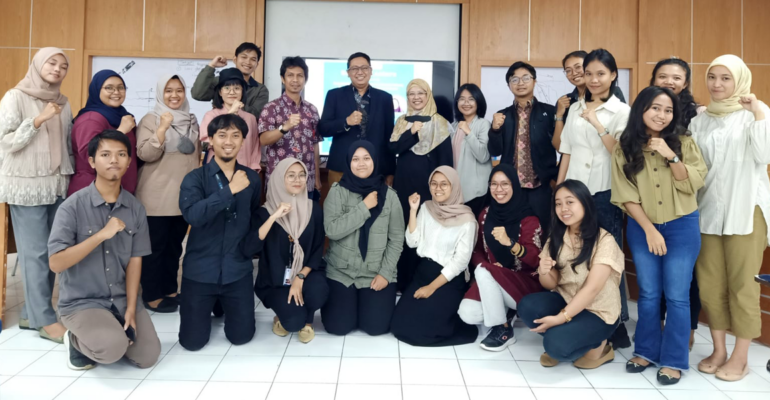IPB University ITK Department Reviews the Importance of Molecular Technology for Marine Fisheries Conservation

The Department of Marine Science and Technology (ITK), Faculty of Fisheries and Marine Science (FPIK) held a public lecture on the Utilization of Molecular Technology in Supporting Conservation in the Fisheries and Marine Sector. The event was organized by the Marine Science Study Program (Prodi IKL) and attended by a number of IKL Postgraduate students, both master and doctoral programs.
Prof Nur Fadli from Syiah Kuala University (Unsyiah) Aceh, who recently earned a professorship in marine biology, was the main speaker. Prof Fadli provided in-depth insight into molecular genetics, which plays an important role in conservation efforts.
“Molecular technology is an adequate technique for specific species identification, one of which is by DNA barcoding,” he explained during the presentation of material in the Multipurpose Room (RSG) ITK, IPB Dramaga Campus.
A number of researches related to the application of molecular technology have been carried out by Prof Fadli, including molecular identification of shark and ray species and grouper in Aceh waters. He also identified molecules of snapper species in the Arabian Sea, and others. From a number of these studies, molecular technology has shown satisfactory results in distinguishing marine biota species.
Chairman of the Department of ITK IPB University, Dr Syamsul Bahri Agus, in his speech underlined the relevance of molecular technology in the real world. “The knowledge shared by Prof Fadli has very potential applications in the conservation arena,” he said with confidence.
In a spirited atmosphere, the event took place offline with deft moderation from Dr Meutia Samira Ismet, Secretary of the IKL Study Program. The open and interactivity discussion became an important milestone for the participants to understand more about the application of molecular genetics in maintaining fisheries and marine sustainability.
“This public lecture is not only a forum to explore knowledge, but also an inspirational momentum for future generations of academics,” said Dr Meutia.
The participants seemed enthusiastic, as evidenced by the many questions asked to Prof Fadli at the end of the event. With Prof Fadli’s presence, IKL students had the opportunity to further explore the latest developments in molecular technology for marine resources and conservation as well as opportunities for student involvement in similar research. (RAT/Rz) (IAAS/MKY)



